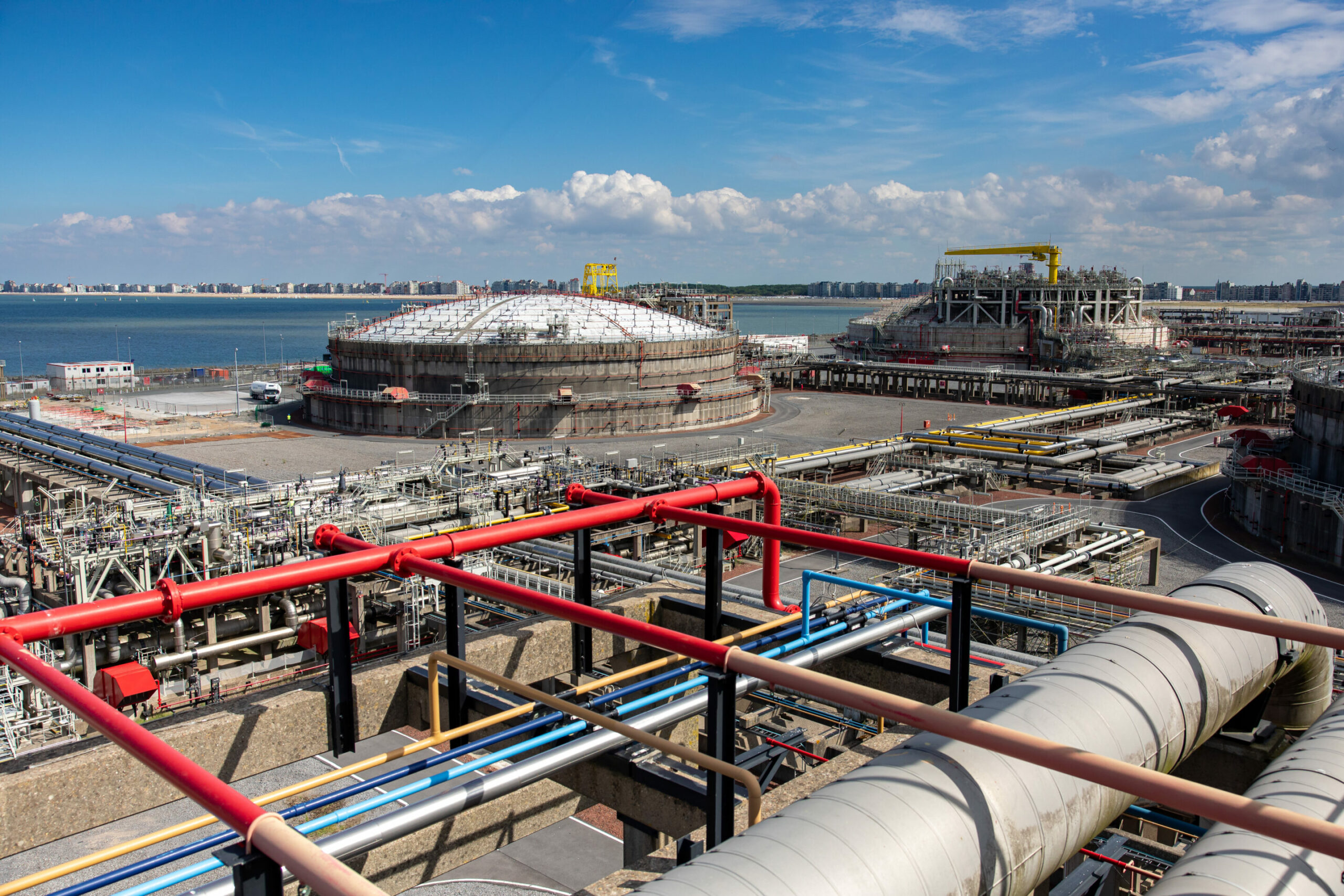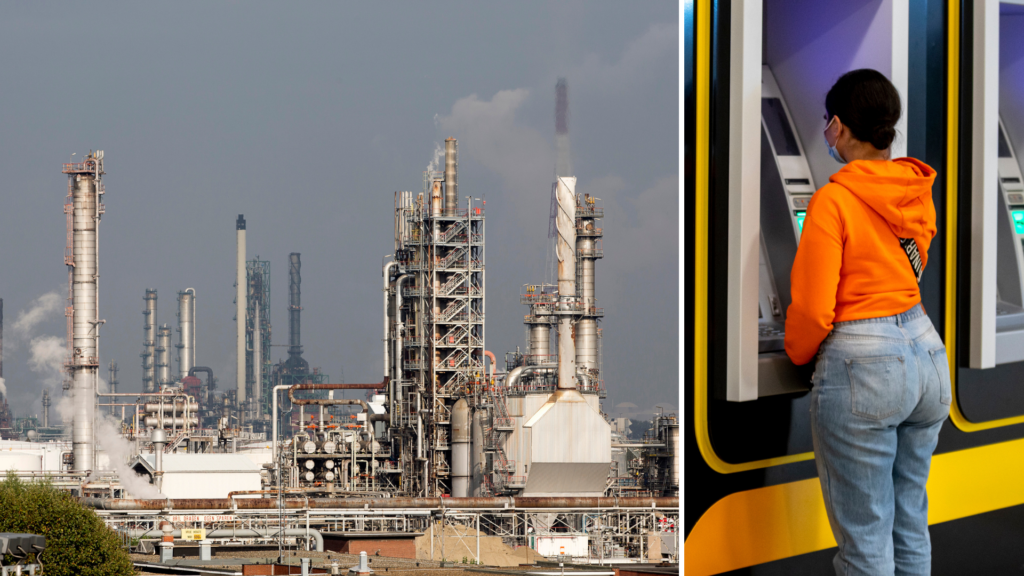Banks can play a pivotal role in the climate transition. However, whether they are doing so in practice can be difficult to assess. As a result, clients may unwillingly be funding practices they oppose.
From images of wild elephants to wind farms harnessing green energy, banks are increasingly branding themselves as "sustainable" on pamphlets or website pages. This may stem from customers' rising desire for finance to become a critical lever in fighting climate change.
"Concerns regarding how banks and funds are spending their money are increasing," Noam-Pierre Werlé, a policy analyst at Reclaim Finance, told The Brussels Times. More people are switching banks because of ecological and environmental reasons.
This was mirrored by Belgium's banking sector. "We see the social demand for banks to make efforts on sustainability," a spokesperson for the Federation of the Belgian Financial Sector (Febelfin), Isabelle Marchand, told The Brussels Times.
Fossil fuel funding
Banks can play a major role in the climate transition by aligning their portfolios with the Paris Agreement (the 2015 treaty aiming to limit global warming to 1.5°C above pre-industrial levels). But while banking associations and banks have taken steps to offer sustainable finance options, much of mainstream finance remains at odds with the objectives.
Data analysed by Reclaim Finance, based on BOCC Plus' 2024 Dataset and shared with The Brussels Times, highlighted that this is also the case in Belgium. It focused on the country's four biggest banks: the Belgian subsidiaries of the big international groups ING and BNP Paribas, and the Belgian groups KBC and Belfius.
"Overall, KBC tops the list for the biggest investment in fossil fuels between 2016 and 2023," said Werlé. The bank provided $4.7 billion (€4.5 billion) in fossil fuel financing in this time. This included funding companies with fossil fuel expansion plans such as Glencore (coal mining) and Engie (gas).

Credit: Belga/Virginie Lefour
KBC is followed by Belfius (€1.13 billion), ING (€752 million) and BNP Paribas (€564 million). However, these figures are misleading, Werlé noted. "This does not mean that KBC is the worst performer. We gathered all of KBC and Belfius' data, while the Belgian subsidiaries of ING and BNP Paribas account for a small part of their business."
BNP Paribas is the eighth biggest bank in the world and ING is the 35th, according to the S&P ranking of the top 100 international banks based on assets volume. KBC is only 89th and Belfius does not even feature in the top 100. "When looking at the bigger picture, BNP and ING allocate much more to fossil fuels."
Are smaller banks greener?
This makes a comparison at the group level challenging. This is also the case for cross-country comparisons due to Belgium's size. "Belgium is not a major economic powerhouse like France, Spain or Italy," said Werlé.
Therefore, when looking at absolute volumes of fossil fuel investments, financial flows from Belgian banks are small, but this is mainly due to the size of the banking groups. "Fossil fuel investments per bank are proportional to their size and their activity in all economic sectors combined. Belgian banks are no exception."
This means that smaller banking groups are not necessarily greener. However, a bank with lower exposure to the fossil fuel sector – usually smaller in size – may find it easier to make strong commitments in divesting than a bank with high exposure, which would feel the hit of such strong commitments.
"Smaller banks often have business models that are more compatible with financing less polluting and more local activities."
Slow progress
Werlé noted that the sector is changing. "KBC, Belfius and BNP Paribas have started to make commitments on oil and gas expansion," he said. BNP Paribas and KBC have also made ambitious commitments to reduce support for coal expansion.
BNP Paribas announced last year that it would stop supporting new bonds of oil and gas companies. "This is what we are pushing for. The banks also have a lot to lose as financing the oil and gas sector is a major part of its business."
Febelfin's Marchand noted banks are "taking care" when financing carbon-intensive sectors, including the fossil energy sector. Many have issued restricted policies on this. "Even more important is financing households and businesses in making their homes and workplaces more sustainable through green renovation and enterprise loans."

The Fluxys LNG-terminal. Credit: Belga / Kurt Desplenter
However, the biggest banks in Belgium are far from fully committing to fossil fuel divestment.
Liquefied natural gas (LNG) is another problematic sector that is often ignored from a climate point of view. This includes banks such as BNP Paribas which are shifting in the right decision on oil and gas production.
Marchand noted that the transition will take time. "The core task of banks is to finance the economy. Much of the Belgian/EU/world economy still relies heavily on fossil fuels, and banks reflect this situation." She added that the government should shape an ambitious long-term policy that drives the transition, and "makes sustainable business operations economically the most profitable."
Empowering clients
The financial sector also remains poorly regulated and governed. This leaves the door open for greenwashing and untruthful commitments. "This remains widespread among the big banks. Savers and bank customers have relatively little protection in this respect," said Werlé.
In this regard, improvement was on the way. Two EU laws – the EU Corporate Sustainability Due Diligence Directive (CS3D) and the Corporate Sustainability Reporting Directive (CSRD) – both paved the way for more transparency about the impact of their activities on the environment.
However, the Commission's so-called "omnibus" proposal, due to be presented on 26 February, may go back on these texts. Specifically, Reclaim Finance and many other NGOs fear it will torpedo the provisions on civil liability that allow legal action to be taken against violating companies.
Concerned customers can also rely on online tools such as Coal Policy Tracker and Oil & Gas Policy Tracker websites, designed to track the commitments taken by financial institutions worldwide. "This is a first step in helping bank customers see which commitments their bank has made on paper."
Related News
- Digital euro: What is it and will it be Europe's next currency?
- Bonds, crypto or gold: Ten ways to invest money in 2025
- Bank like a local: Opening an account in Belgium
Marchand also pointed to the Towards Sustainability label awarded to "sustainable investment funds". It is the strictest and most widely used label of its kind in Europe and was launched in Belgium in 2019.
"Investment funds with this label must comply with strict sustainability criteria, including the prohibition of investing in fossil fuel companies involved in new exploration or further expanding their fossil activities." More than 720 investment funds have this label in the country.

